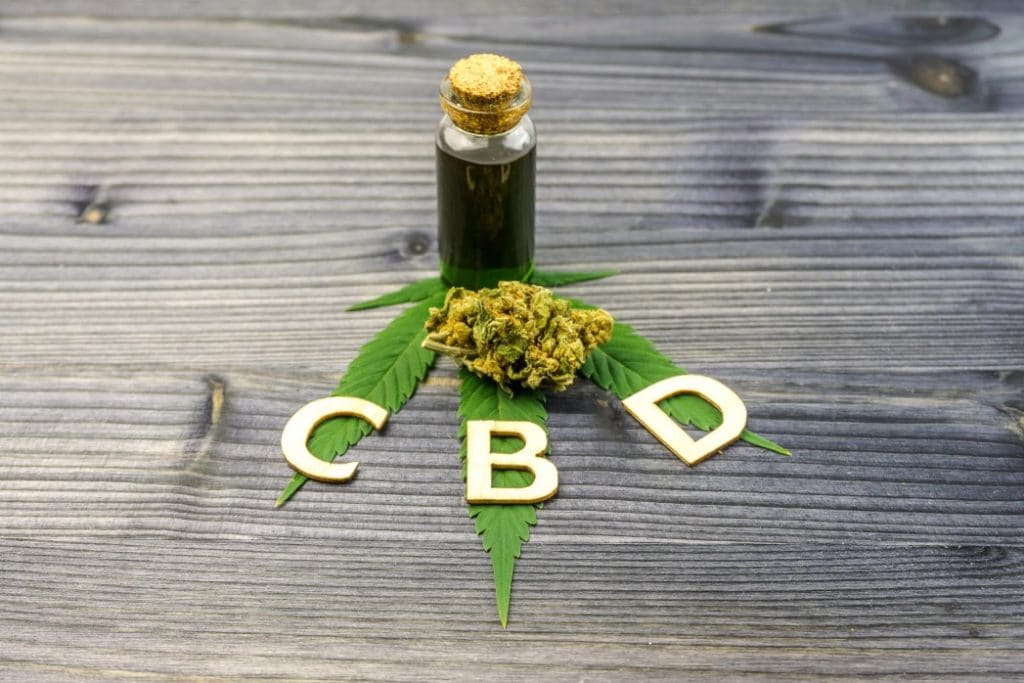By Deborah Malka MD, PhD
Read Time: 4:30min.
There is a lot promotion out there offering hope that over the counter cannabinoids, such as CBD, can provide remarkable health benefits. But what’s real and what’s just marketing? How can we use CBD as preventative medicine and know that we are doing the right things? We’ll answer these questions – using valid medical research–not marketing or wishful thinking.
CBD is being used for a wide variety of health issues, but the most popular three uses are – pain, insomnia, or mood disorders especially anxiety, with anxiety topping the list for CBD. But what about using CBD as a preventive medicine, along the lines of a nutritional supplement like multivitamins? This is a new application that is gaining traction across the country, but many consumers are confused about whether this is a good idea, what CBD can really do, and how much CBD, or other cannabinoids for that matter, to take.
Some believe that since cannabinoids affect one of our main regulatory systems, the endocannabinoid system (ECS), giving it a boost with external cannabinoids might be useful. The fact that CBD does not act primarily through this system is a little-known fact. Many articles mislead you into thinking that CBD can do what other ECS boosting cannabinoids, such as THC, can do. It’s simply not true. Effects of THC are not identical to those of CBD. A primary difference is that THC can cause psychoactive effects, while CBD does not. Another main area of distinction is that THC is often more effective for pain treatment. Furthermore, not all you read as scientifically “proven” regarding the benefit of cannabinoids is applicable to human use. There are statements about the benefits of cannabinoids that have been studied in vitro (in cells), or in vivo (usually in animal studies), and at considerably higher doses than the average person would ever take. For example, there is a claim that taking CBD may be good for bone health. That may be the case, but we can’t say for sure yet. We also don’t know what dose would be required because this hasn’t been studied in human trials. There are, however, a number of clinically proven preventative benefits from using CBD, which is safe for daily use without making you feel “high”.
This article focuses on the things that have been clinically validated, rather than the “potential effects” of CBD. We have done the research for you so that you may get the results you’re aiming for.
There are 5 main areas in preventive medicine for which CBD can help:
- Anti-inflammatory benefits
- Reduce anxiety, stress
- Cardiovascular health
- Maintain brain and nervous system health
- Reduce pain
1. Anti-inflammatory benefits
CBD is well-known to be anti-inflammatory, even in modest doses. Because CBD can reduce inflammation it leads many people to think it might be good for inflammatory pain (see later section), which it can, but it has much wider benefits than simply inflammatory pain. Take for example digestive issues that have an inflammatory component. Do you sometimes get gastrointestinal bloating or pain after a meal? CBD may help with this type of inflammation too.
Also, inflammation is thought to be a component of a disturbed immune system, so if you get colds or illness more frequently than usual CBD might help. The anti-inflammatory effect of CBD on blood vessels and nerves may also have cardiac and nervous system benefit (see below). These are all good reasons to use CBD for prevention, possibly at a dose of 10-20 mg, 1-2x/day, depending on what your sensitivity and tolerance is. Certainly, if you’re having a flare-up of any of these symptoms, you’d want to increase your dose above a maintenance level. Remember that your dose of pure CBD from isolate (just CBD and no other cannabis ingredients) will likely need to be higher, maybe more like 25 mg 2x/day versus a full spectrum (includes other cannabinoids like THC and terpenes).
2. Reduce anxiety or stress
Clinical trials have proven CBD can reduce anxiety and it’s the most common reason people use CBD medicinally. For people with stress, it is a little more complex, depending on whether you’re “burned out” and irritable or whether you’re exhausted. Think of CBD as producing a relaxation response, but it can also be mildly sedating, so finding the correct dose is important. If you’re already exhausted, you may find CBD too relaxing, or you may need to use small amounts throughout the day, i.e., one vaporized puff, every 2 hours. For irritability or other forms of stress, a higher dose might be useful. For anxiety prevention, a dose of tincture, 10 mg 2x/day may work for you. Remember your dose of pure CBD from isolate will likely need to be higher.
3. Cardiovascular health
CBD’s action as an anti-inflammatory agent may help the endothelial lining of blood vessels (cells that line the interior surface of blood vessels) to become less “sticky”— allowing your blood to flow more freely. This has significant cardiovascular benefit in helping to prevent hypertension and atherosclerotic plaques. In a small trial with human subjects, resting blood pressure was lower after a single dose of 600 mg of CBD, and it reduced the blood pressure response to stress. Note the high dose of pure CBD used for this experiment–600mg is a lot. More work needs to be done at lower doses in the range that average consumers might take. CBD is also thought to be cardioprotective, possibly helping reperfusion (tissue damage caused when blood supply returns to tissue after a lack of oxygen) after a “heart attack” type of event. The additional benefits of CBD to lower anxiety may be useful in preventing a heart attack.
4. Maintain brain and nervous system health
CBD is known as an anti-oxidant and anti-inflammatory agent for the nervous system, affecting the function of nerves and the brain. Although the effects of CBD on brain trauma have only been studied in animals, it is reasonable to think that it may have a neuroprotective effect (preservation of your nervous structure). It’s not yet established how much humans should take to get these benefits, but it is a topic currently being studied. So far, CBD has been shown to help nervous issues like psychosis in patients with Alzheimer’s disease or Parkinson’s disease, but we don’t know if it also repairs the brain. While there are many reports on the promise of CBD as a neuroprotectant in humans, clinical studies have yet to be done. We have some information from THC/CBD extracts, such as Sativex, which has helped neuropathy in multiple sclerosis, and from a CBD product such as Epidiolex, which has reduced seizures in epilepsy, but nothing conclusive. The doses used for epilepsy are high, while the doses used for neuropathic pain are more reasonable for preventive medicine use. (see “Reduce Pain” next).
5. Reduce pain
This is an area where the benefits you can expect from CBD are not well understood. CBD is generally, not analgesic, which means it doesn’t directly reduce pain, like an opiate would. It can however, lead to less inflammatory or neuropathic pain. While the research on humans is scarce, anecdotal use by many medical cannabis patients has shown these types of pain to be effectively treated by both THC and CBD. Clinically, this means that if you have inflammatory pain, for example, joint pain, CBD may provide relief. How much to take depends on how much pain you have. The same goes for neuropathic (nerve issues caused by damage or disease), or neurogenic (nerve dysfunction) pain. A typical dosing regimen might be 25 mg of an edible or a tincture 2x/day. Of course, if you’re using pure CBD the dose will have to be much higher. Don’t forget to add to the effect by also using topical CBD and/or THC on a painful area. But what about the preventive use of CBD, to reduce pain before it actually happens? Absolutely consider it if you expect to have pain after exercise, or pain from eating when you’re stressed. Taking your CBD dose in advance may be a big help in reducing pain later.
There are other benefits that have been reported from using CBD for medical conditions such as sleep, cancer, psychosis, nausea or spasticity, to name a few. These do not fall under the scope of using CBD as a preventive medicine, so they are not included here. Other potential claims of CBD use for weight loss, bone health, or anti-aging have not been proven in humans. The FDA does not regulate the safety and purity of dietary supplements so, because CBD is primarily marketed and sold as a supplement, it does not come under the same stringent purity and lab-testing requirements that medical cannabis is subjected to. That’s why you must be careful about what brands of CBD you take. This is why we carefully pick the brands we have information on here at Three Wells–so you know they meet the claims they make.
There’s a lot that we don’t know as far as dosing, efficacy and long-term effects that need to be studied before the “safe” use of CBD as a general preventive medicine is a universally smart idea. On the other hand, at the mild doses of botanical CBD given above, the risks are relatively low. At the much higher doses of pure CBD that you’d need to take for complex ailments like epilepsy, that is a much greater unknown. If you’re already taking pharmaceutical medications, low doses of CBD are not likely to have detrimental interactions, but higher doses may require you to adjust the dose of some medications, so please consult a knowledgeable medical professional.




